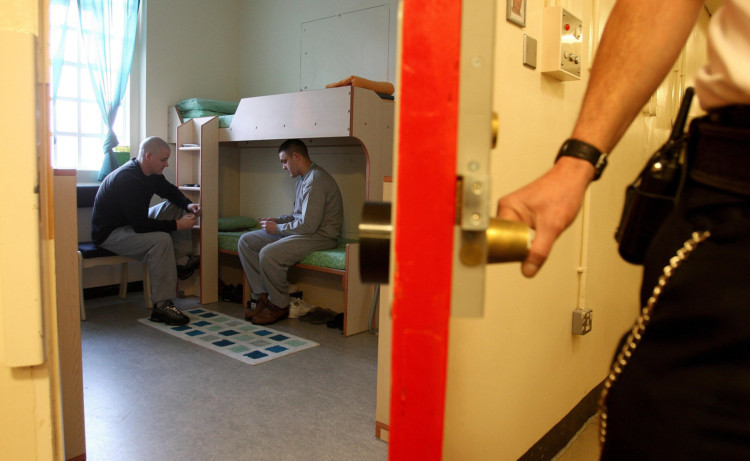
Prisoners spend 21 hours a day doing nothing useful in jail.
Just 12.5% of their time an average of three hours a day is for “purposeful” activity such as work and learning. And attempts by inmates to gain qualifications behind bars to help stop them re-offending have plummeted.
Figures show there’s been a 25% decrease in pass grades being achieved by cons in the past five years. Over the same period the cost of keeping a prisoner has rocketed to a record high of £33,153-a-head.
The average cost has risen partly due to a fall in prisoner numbers.
The shock revelations, in the Scottish Prison Service’s latest annual report, have been met with disbelief.
David Sinclair of Victim Support Scotland said: “All of the partners in criminal justice in Scotland are keen to see prisoners gain as much as they can, and any sign that’s not happening is a concern.
“Reducing re-offending is what we all want, and attaining qualifications for use after release would be an important element of that.”
Over the past 12 months there was on average 7,852 prisoners locked up. This compares to 8,013 in the previous year. The overall cost to taxpayers of keeping prisoners behind bars was more than £260 million.
The report also revealed there were 71 serious prisoner-on-prisoner assaults last year, plus over 150 on staff. On top of that there were nearly 32,000 breaches of discipline among male prisoners, and more than 2,500 for females.
Tory chief whip John Lamont said: “We need inmates to be given work and education, otherwise their rehabilitation will never be complete.”
John Scott, QC, chairman of the Howard League for Penal reform in Scotland, believes overcrowding is central to the problems faced by the SPS. He said: “This decline in qualifications is worrying but not surprising. I believe the prison service are doing the best they can given overcrowding. There needs to be a drastic reduction in the prison population to around the 5,000 level, and a complete culture change in the way we address the issue.
“For example, short term sentences do more harm than good. They take away many of the supports that keep offenders out of prison.
“We are very good at launching effective early intervention pilot projects, but then not rolling them out across the country.”
A spokesman for the SPS said: “Employment related qualifications may have dropped in number but the aim is to better target the needs of individuals. SPS has recently changed service provider and are more focused on outcomes rather than simple outputs. “The past year has also seen a drop in prisoner numbers, combined with significant organisational changes. These factors have combined to affect the figures.”

Enjoy the convenience of having The Sunday Post delivered as a digital ePaper straight to your smartphone, tablet or computer.
Subscribe for only £5.49 a month and enjoy all the benefits of the printed paper as a digital replica.
Subscribe